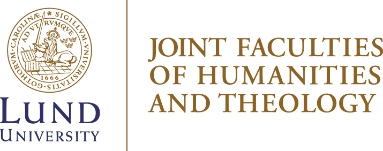Course
Course code:
ÖCKR08
Swedish title:
Öst- och centraleuropakunskap: Ryssland och Östeuropa - nutid och dåtid
Credits:
15
Study period:
autumn semester
2024
Type of studies:
full time,
day
Study period:
2024-11-01 – 2025-01-19
Language of instruction:
English
Application code:
LU-30660
Eligibility:
Admission to the course requires 90 credits, of which at least 60 credits are in East and Central European Studies, European studies, Russian with a literary/cultural specialisation or equivalent knowledge and English 6.
- The schedule will be published 2024-06-20.
- Library Guide
Description
Learn about how historical events shape identity in modern Russia and Eastern Europe.
The course focuses on historical processes and their role in shaping identity in modern Russia and its Eastern European neighboring countries (such as Ukraine, Belarus, and Moldova), which were part of the Soviet Union before 1991. Key identity-shaping events both before and after 1917 (such as the Russian communist revolution, the famine and terror of the 1930s, World War II, the Cold War, the fall of communism in 1989, or the dissolution of the Soviet Union in 1991) are discussed and analysed in their historical context and from the perspective of the new post-Soviet and post-communist era.
Among the main questions of the course are: What is the difference between the historical development in Russia, Ukraine, Belarus, Moldova, and others on one hand, and the rest of Europe on the other? Which history—both new and old—is worth remembering, and which should be ignored and forgotten? How are the most significant events interpreted, and how are they framed in various historical narratives that aim to give different meanings to historical developments and create various collective (national, religious, political, cultural, etc.) identities? Who are the main actors behind these processes? How is the development in Russia, Ukraine, Belarus, Moldova, and others since 1991 related to the Europeanization process, that is, the effort to create a common European identity?
By the end of this course, you'll gain a deep humanistic understanding of Russia and Eastern Europe, confidently discussing issues, theories, and research. Mastering key concepts like identity and historical culture, you'll analyse how Russian, Ukrainian, and Belarusian identities take shape, connecting these processes to broader regional and European identity trends. You will get analytical skills to summarize and critically evaluate scholarly literature on Eastern European cultures, linking these insights to global and European contexts. Finally, you'll develop the ability to assess the struggle between EU-advocated parliamentary-democratic ideals and persistent authoritarian tendencies in contemporary Russia and Eastern Europe, and to reflect on the of history – and the use of history – in relationship to the creation of democratic values in modern society.
The course is examined by mandatory seminars that include written assignments.
Included parts
- Russia, 7.5 credits
- The Other Post-Soviet States, 7.5 credits
Important dates – autumn semester 2024
Second Admission Round / Nationell ansökningsomgång
Dagtid
Lund,
heltid
In English
1 November 2024 –
19 January 2025
Öppnar eventuellt för sen anmälan den 15 July 2024
How to apply
Lund University uses a national application system run by University Admissions in Sweden. It is only possible to apply during the application periods: October–January for autumn semester and June–August for spring semester.
Extended application deadline
Sometimes the application deadline is extended for a specific programme or course. In these cases you will find the message "open for late application" by the programme/course information on universityadmissions.se. You apply with the usual application steps. As long as this message is showing, it is possible to apply, but late applications are processed in order of date, so it is still important to apply as soon as possible. Please note that if the programme/course does not have an extended deadline, it is not possible to apply late.
First or Second Admission Round?
All international students are encouraged to apply to the First admission round. This round takes place many months before the start of a semester and gives students the time they need to pay their tuition fees, apply for and receive their residence permit (if required), find housing, etc.
The Second admission round is an alternative for students from EU/EEA countries as they do not need a residence permit. Non-EU/EEA students will most likely not have enough time to obtain their permit before the start of the semester. However, even EU/EEA students are advised to apply during the First admission round, as some programmes can be applied for only in the January round. Also, this provides applicants with an admission decision much earlier, which is helpful in making decisions about their studies.
Tuition Fees
Non-EU/EEA citizens
Full course tuition fee: SEK 31,250
First payment: SEK 31,250
Convert currency
Citizens of a country outside of the European Union (EU), the European Economic Area (EEA) and Switzerland are required to pay tuition fees. You pay one instalment of the tuition fee in advance of each semester.
Read more about tuition fees, payments and exemptions
EU/EEA citizens and Switzerland
There are no tuition fees for citizens of the European Union (EU), the European Economic Area (EEA) and Switzerland.
Application fee
If you are required to pay tuition fees, you are generally also required to pay an application fee of SEK 900 (approximately EUR 100) when you apply at universityadmissions.se. You pay one application fee regardless of how many programmes or courses you apply to.
Read more about paying the University Admissions in Sweden application fee and exemptions
Second Admission Round
Nationell ansökningsomgång
Höstterminen
2024
Öppnar eventuellt 15 July
